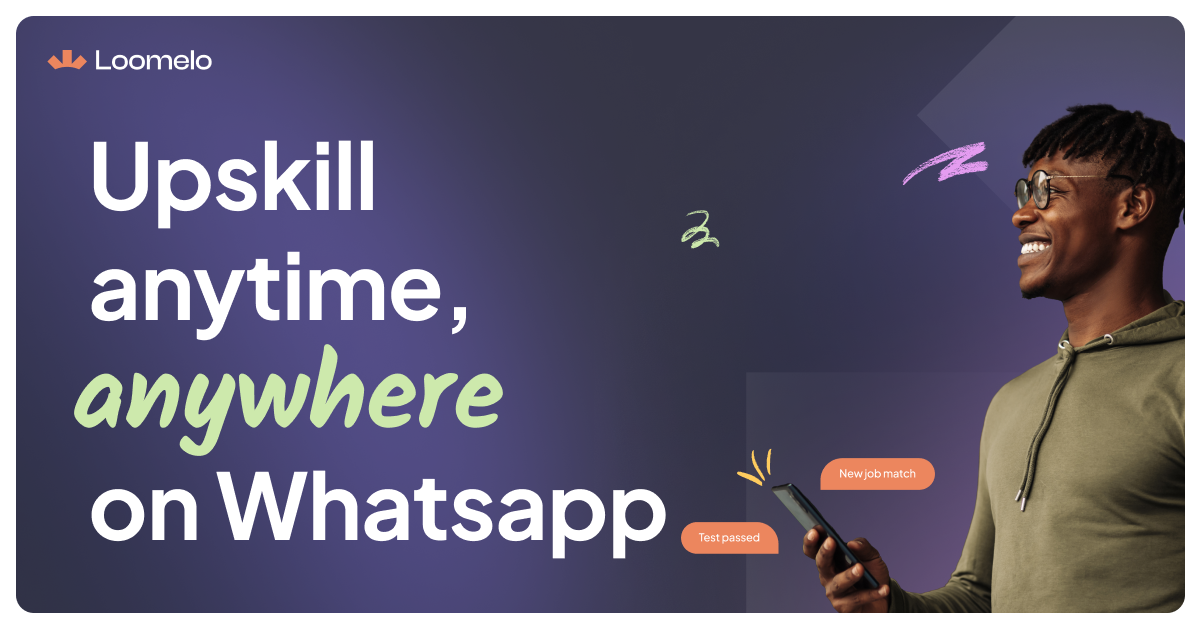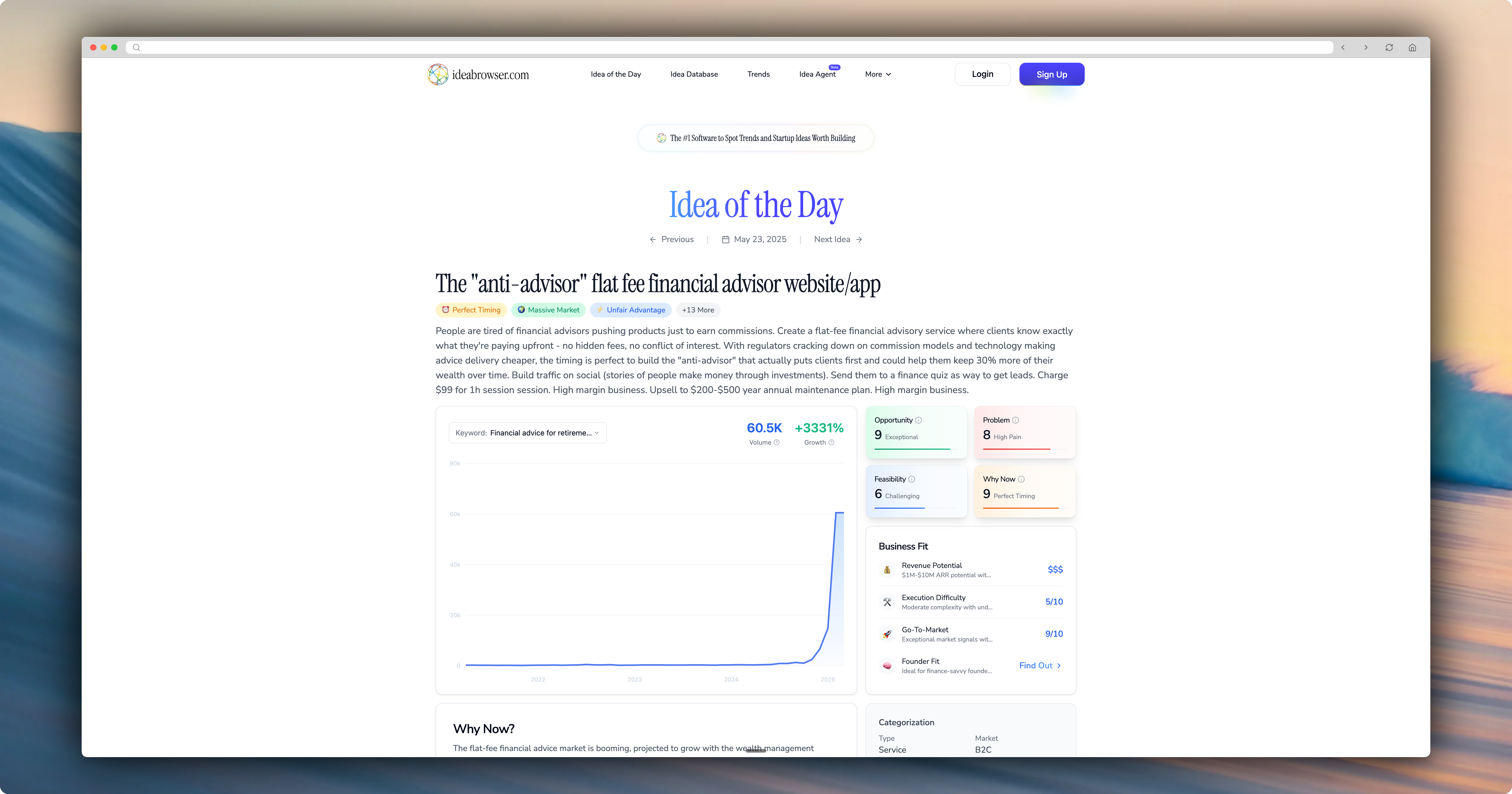Part 2: Permissionless Power: How Young Black Africans Can Productize Themselves and Beat a Rigged System

Previously in Part 1, we unpacked South Africa’s extreme inequality and the systemic barriers that keep talented township and village-based youth stuck in survival mode. But we also explored a powerful alternative: permissionless work—a philosophy rooted in owning what you build, leveraging tech, and bypassing gatekeepers to create your own path.
If you haven’t read Part 1 yet, catch up here → South Africa: The World’s Most Unequal Country
This part is about action.
You’ve seen the system for what it is. Now it’s time to play by new rules. In this guide, we’ll break down how to:
- Use free tech tools and platforms to start with what you have
- Launch real, income-generating ventures with little to no capital
- Build long-term equity, document your journey, and register your business
- Turn community hustle into scalable impact
Let’s turn ambition into action.👇
Your Village/Township-Friendly Tech Toolkit
You might be thinking, “This sounds great, but what do I actually need to start?” The good news is you likely already have the most important tool, or it’s within reach. Here’s a village/township-friendly tech toolkit – affordable (or free) tools and platforms to kickstart your permissionless journey:
A Decent Smartphone (or Access to a Computer)
This is your primary tool. With an Android phone, you can record video, build a social media presence, manage a website, even do basic coding or design. If you can afford a second-hand laptop or visit an internet café or community center with computers, that’s a bonus for tasks like programming or extensive writing. But many entrepreneurs run everything from a phone.
Tip: If you have an older phone, look into lightweight apps or browser-based tools. You’d be amazed what a basic device plus determination can achieve.
Internet/Data Strategies
Data can be expensive, but there are ways around it. Use free Wi-Fi hotspots (libraries, malls, community Wi-Fi initiatives) whenever possible to download resources or upload content.
Many mobile networks offer nighttime data bundles or social media passes at lower cost – leverage those to push your content when it’s cheap. Keep an eye on zero-rated resources (some educational sites or government sites don’t charge data).
Plan your uploads for when you have a good connection. Remember, a single viral post or an online sale can pay back that data cost many times over.
Free Learning Platforms
The internet is your university. Take advantage of free education to build the skills your business needs. Some examples: YouTube (practically any skill – coding, graphic design, marketing – you’ll find tutorials), Khan Academy (for foundational academics or coding basics), freeCodeCamp (learn programming interactively), Coursera and edX (they offer free auditing of courses from top universities), and even TikTok or Instagram Reels for bite-sized tips (just follow credible creators).
If you’re reading this, you have enough internet access to start learning something new today. Knowledge is the one asset nobody can take from you, and you can acquire it for free.

Platform for upskilling on Whatsapp
Content Creation & Design Tools
You don’t need expensive software to create professional content or products. Canva is a fantastic free tool for graphic design – perfect for making logos, social media posts, posters, even pitch decks. It has templates that make your work look slick. For video editing, try free mobile apps like CapCut or InShot (great for editing TikToks, YouTube Shorts, etc.).
Writing a blog or document? Use Google Docs or LibreOffice – free and powerful. If you delve into programming, VS Code is a free code editor, and platforms like GitHub let you host code projects publicly for free.
These tools level the field; you can create content that rivals big agencies, right from a shared laptop or your phone.
Platforms to Publish or Sell
Leverage existing platforms that already have audiences, at zero cost. Social media is the obvious one – Facebook, Instagram, TikTok, Twitter (X) – all free to use for marketing and reaching people. For video content, YouTube is king (and you can eventually earn ad revenue).
If you prefer writing, consider starting a free Medium blog or a LinkedIn Newsletter to share your insights. To sell products or services: set up a free Facebook Business Page or use Facebook Marketplace.
If you have crafts or designs, try Etsy (though shipping from SA can be tricky) or local e-commerce marketplaces like Takealot Marketplace or Bidorbuy once you’re ready.
If you’re offering freelance services (writing, design, coding), create a profile on LinkedIn, or local freelance sites – it costs nothing, just your time to bid for work.
Use WhatsApp Business (free app) to manage orders and customers – it allows a catalog and automated messages, turning simple WhatsApp into a mini CRM.

Platform for starting a business on Whatsapp
The bottom line: whatever you want to do, there’s likely a platform that lets you start free and find customers worldwide.
AI Startup Toolkit: Accelerate Your Idea from Concept to Customers
As mentioned, don’t overlook the new wave of AI tools that can act like your free virtual assistant. For example, ChatGPT or Bing Chat (free versions) can help brainstorm business ideas, draft marketing copy, or improve your writing.
Canva’s AI can generate design ideas. There are AI video tools that can help with subtitles or basic editing. You still have to provide the creativity and direction, but these tools can save you tons of time (as township entrepreneurs are already discovering) [6][7].
Here’s a handpicked selection of cutting-edge AI tools designed to help you rapidly launch, validate, and scale your startup:
Idea Generation & Validation
- Ideabrowser (Free) – Discover validated startup ideas driven by community signals.
- Wisprflow – Voice-to-prompt AI for instantly bringing your ideas into existence.
Building & Prototyping
- Claude Code – Deploy sub-agents that research, design, and write code automatically.
- Bolt/Lovable/Replit – Quickly build interactive prototypes.
Workflow Automation
- Lindy AI – Drag-and-drop AI agents for effortless workflow creation (no coding required).
- String.dev – Effortlessly create workflows with just a sentence
- Vapi – One-click voice agents to gather instant feedback and boost sales.
Development & Coding
- Cursor – AI-powered coding editor that accelerates software development.
- Code Rabbit – Your pull-request copilot, automating code reviews, fixes, and refactoring.
- Ampcode – Lightning-fast agent command-line interface (CLI) to boost development productivity.
- Anima – Transform Figma designs into brand-aligned "vibe coding."
Marketing & Content Creation
- Arcads – Generate creative ad copy and targeted campaigns with a single prompt.
- Reelfarm – Easily create engaging AI-generated videos for social media.
- Synthflow – Produce realistic voice-overs for compelling product demos.
- Poppy AI – Automatically generate visually captivating AI-powered ads.
- Flux AI – Enhance your product visuals with AI-generated images and avatars.
User Insights & Testing
- Hologram – Create synthetic user tests to rigorously stress-test your product flows.
- Surfboard – AI-driven cohort analysis tool to identify valuable user insights early.
- Julius AI – AI data analyst delivering actionable product and marketing insights from user data.
Product Optimization
- Productlane – Turn user feedback into prioritized AI-driven product roadmaps.
- Superwall – Experiment with paywalls and optimize monetization without app updates.
Audience Growth & Engagement
- Gemini – Automate audience engagement by transforming video content into actionable insights.
- Reddit Answers – Tap into endless content inspiration directly from Reddit communities.
- Runway ML – Quickly produce high-quality product demo videos using simple text descriptions.
- Gamma AI – Create compelling lead magnets through polished AI-generated presentations.
Empower your startup journey with these innovative tools to ideate faster, build smarter, and scale quicker!
Embrace them as force-multipliers in your solo business. If you’re unsure how to use them, search for “How to use ChatGPT for XX” on YouTube – you’ll find someone explaining it.
This toolkit proves that lack of big money is no longer an excuse. With a device, internet access, and the above free tools, you have a starter pack to punch above your weight.
Many global entrepreneurs began with just these basics. The tools are on the table – now it’s on you to use them creatively. Let’s spark some ideas on what you could actually do with this toolkit, even with very limited capital.
Five Permissionless Business Ideas You Can Start Now
Sometimes the hardest part is choosing an idea. Here are five concrete, realistic business or content ideas that young creators in townships (or anywhere) can start with little to no money. These are not pie-in-the-sky fantasies, they are pathways you can use to start earning and scaling up.
Stokvel CFO-in-a-Box
Use WhatsApp to automate contributions, reminders, and payout schedules for local savings groups.
Idea: Set up a simple WhatsApp flow that logs payments into Google Sheets, sends monthly statements, and alerts late payers. Offer add-ons like savings challenges and year-end payout calculators.
Capital needed: Basically zero, just data and time.
Tip: Start with one stokvel you already know. Offer a free first month, then charge R49 to R149 per group per month. Get a testimonial and use it to land the next five groups.
Tender Decoder ZA
Turn complex tenders into plain language summaries with ready-to-use templates delivered by WhatsApp and email.
Idea: Pick two sectors you understand, for example cleaning or catering. Each week publish a shortlist with deadlines, required docs, and a one-page template pack. Offer a paid bid review as an upsell.
Capital needed: Near zero. Use free research tools, Google Drive, and Canva templates.
Tip: Price at R79 per month or R399 per quarter. Feature success stories to convert free readers to paid.
QR Menu plus Smart Upsell for Shisa Nyamas
Replace paper menus with QR codes and automate WhatsApp order confirmations with simple basket-based upsells.
Idea: Create a QR menu that logs orders to a sheet. When someone orders meat, auto-suggest pap, chakalaka, or a drink and track acceptance rate. Send owners a weekly margin report.
Capital needed: Very low. Print QR codes and use free or low-cost no-code tools.
Tip: Pilot with one outlet for two weeks. If upsells lift average order value by even 10 percent, lock in at R99 to R149 per month and expand to nearby venues.
YouTube or TikTok Creator (Local Stories or Skills)
Use that camera in your pocket to start a video series.
Idea: Document interesting stories in your community (profiles of local heroes, daily life in your township – there’s global curiosity for this authentic content), or teach a skill you have (speak fluent Xhosa and English? – make language lesson videos;
Consistency is key here: upload regularly, engage with comments. Over time, you can monetize through YouTube’s Partner Program or get sponsorships/brand deals if you grow an audience.
Capital needed: basically zero (just data).
Tip: Leverage trending hashtags/challenges on TikTok to get initial visibility, and always cross-promote your YouTube on other platforms.
Freelance Digital Services (Start as a Service, Grow into a Product)
If you have a skill like writing, graphic design, coding, video editing, or even just fluent English for virtual assistant work – offer it online.
Idea: Start local: offer to build simple websites for spaza shops, design flyers for local events, manage social media for nearby small businesses. Charge a small fee to build your portfolio. Every project you do is a stepping stone – you gain experience and testimonials. As your skills and reputation grow, you can niche down and charge more.
Eventually, you could even productize a service, for example, if you notice many clients need help with CVs, create an e-book or online course on “CV and Interview Prep” and sell it.
Capital needed: just your skills and hustle.
Tip: Use the free learning tools to upskill continually (e.g., take an online course on digital marketing if you manage social accounts). And set up a LinkedIn profile to network and showcase your work – many people get clients simply by posting about what they’re doing.
E-commerce Micro-business (Sell What You Have or Can Source)
You don’t need a fancy store or millions in stock to start trading online. Look around your community for products you can sell. Maybe your aunt makes great handmade accessories – offer to sell them online for a cut.
Idea: Use Facebook Marketplace, Instagram (post good pictures and use relevant hashtags), or WhatsApp groups to sell. For payments, you can start with Cash on Delivery or bank transfers/EFT – no need for an expensive payment gateway initially.
Productize: As you validate what sells, you can scale up, maybe register on Takealot or set up a simple online store using free tools.
Capital needed: low (cost of initial stock, which can be very small).
Tip: Focus on a niche you understand – e.g., affordable skincare products for teens, or local traditional crafts for expats. Good pictures and honest customer service will set you apart from scammers. Reinvest any profit to grow inventory or improve quality.
Each of these ideas starts small but has permissionless scaling potential. For instance, a Stokvel CFO-in-a-Box can evolve into a full fintech for savings groups across South Africa. Tender Decoder ZA can grow into a procurement marketplace with bid templates, vendor verification, and success-based pricing. A QR Menu plus Smart Upsell can become a lightweight point of sale, loyalty, and delivery stack used by dozens of outlets.
A YouTube creator can turn their channel into a full-time production company over years. A freelancer can evolve into an agency or a SaaS (Software as a Service) product if they spot a common need. An e-commerce hustler can become a recognized brand.
Importantly, all can be started with little to no external funding – you’re leveraging your time, knowledge, and free tech tools (that leverage again!) to begin.
Pick one idea that resonates most with you and aligns with your skills or passions. Don’t worry if it’s not perfect – the act of starting will teach you more than endless planning.

Discover validated startup ideas driven by community signals.
Build Equity, Reinvest Early, and Formalize Your Hustle
As you embark on any of these paths, keep a few key principles in mind to maximize your chances of success. It’s not just about making a quick buck; it’s about building something that lasts and grows.
Think Equity from Day One
Even if you’re just freelancing to make ends meet, have an owner’s mindset. Treat your small project as the seed of a bigger enterprise. This might mean branding it (give it a name, even if it’s just “Your Name Media” or “XYZ Creations”) and building a presence (a simple Facebook page or one-page website) so people know it’s a real business, not just a side gig.
Equity also means reinvesting in the business – don’t just take all earnings to spend on consumption. Reinvest early revenue into better tools, marketing, or learning new skills.
Those investments will pay off exponentially. For example, if you made R500 from some sales, maybe spend R200 on a domain name and a basic website or a better piece of equipment. You’re planting profits back to grow the tree, rather than eating the seeds.
Document Your Journey (Build in Public)
We touched on accountability and posting about your work – this isn’t just marketing fluff, it’s a real asset. By documenting your journey, you are creating content that could itself open doors.
A LinkedIn post about how you landed your first client, or a Twitter thread about lessons from your first year in business, can get noticed by people who want to help or collaborate.
It also serves as a diary that you (and others) can learn from. Don’t worry about being perfect – share your genuine experiences and milestones. If you’re comfortable, show behind-the-scenes of your hustle on Instagram Stories or Facebook.
This transparency builds a personal brand around you. Down the line, that brand can lead to job offers, investment, or media coverage. Plus, it inspires others in your community – a ripple effect of courage.
Play Legal and Long-Term (Register That Business)
In the early hustle phase, you might operate informally – that’s fine to start. But as soon as you have some validation and a bit of income, formalize your business. Registering a private company (an “(Pty) Ltd” in South Africa) or even a sole proprietorship with SARS for tax is not expensive (a few hundred rands through CIPC) and it unlocks many benefits.
Formal businesses can open business bank accounts, apply for government or corporate supplier opportunities, and be taken more seriously by clients. Unfortunately, the vast majority of township businesses stay informal – one study found only ~14% of micro-firms in townships were formally registered, far lower than in cities.
By registering, you set yourself apart as someone ready to scale and play by the broader market’s rules. It also mentally elevates your side gig into a “real company,” which can be motivating. You’ll start thinking bigger. Make sure to also keep basic records – track your income and expenses (even in a notebook or simple spreadsheet).
Financial discipline is part of leveling up from hustler to business owner. And when you register, you can still keep things lean – you don’t need a fancy office; you can run a legit company from your bedroom or garage, but now with the paperwork to back it.
Reinvest in Relationships
Yes, build your venture – but also build your network. As a young entrepreneur or creator, your peers are allies, not competitors. Share opportunities, shout out others’ work, collaborate on projects or events.
The goodwill you put out comes back around. If you grow big, you might need a co-founder or employees – and those will likely come from people who’ve seen your journey and trust you.
Avoid the crabs-in-a-barrel mentality; instead, foster a community of encouragement. When one of you wins, it shows others what’s possible. These relationships and community ties are a form of social equity that can be as crucial as financial equity.
Lastly, always remember why you’re doing this. It’s not just about money (though we all need it) – it’s about freedom and impact. By building something of your own, you are creating options for yourself and maybe even for others you’ll employ or inspire.
You’re proving that location and background are not destiny. You’re reclaiming power in a system that often makes people feel powerless.
No Permission Needed: Start Today 🚀
The systemic challenges in South Africa are real – we won’t fix decades of inequality overnight. But in this moment, you have more power than any previous generation of young Black Africans to break out and build your own path.
Permissionless power means you don’t have to wait for an institution to validate you. If the gatekeepers won’t open the door, you can build your own digital door and walk right through.
It all starts with a first step. It could be writing your idea down and sharing it on LinkedIn, filming that first YouTube video on your phone, registering an account on a freelance site, or gathering a few peers to brainstorm. Don’t let analysis-paralysis stop you – learn by doing.
Your first version won’t be perfect, and that’s okay. Iteration is the path to greatness. As you take action, refer back to Naval’s principles: are you building equity or just quick cash? Are you using leverage (tech, media) or doing everything the hard way? Are you playing a game that can compound, and are you being accountable to your vision? Use these as guideposts.
Most importantly, believe that you are entitled to play in this new digital economy. The old system might be rigged, but the beautiful thing about the internet is how it routes around barriers. There are audiences and customers out there for you across the country, across the continent, even worldwide – you just need to connect with them. And you can, without asking anyone’s permission.
So, what will you productize first? Your story, your skills, your passions – they’re all waiting to be turned into something greater. Start now. In a year, you’ll be glad you did, and in five years, you could be looking back in amazement at how far you’ve come by refusing to stay stuck.
The biggest unlock for us as founders is permissionless work—creating without waiting for approval. The internet lets us bypass gatekeepers and go straight to the market.
Instead of begging for funding or validation, we let the market judge our value through what we build—whether it’s code, content, or community. The game is rigged, but we don’t need to ask to play. We create. We own. We scale
Now is the time. Equip yourself, bet on yourself, and take that leap – no one is going to give you permission, and that’s the best news ever. Onwards! 🚀
Ready to take on the journey? We’re here to keep you motivated and armed with tips.
Subscribe to the newsletter for future articles, and follow on LinkedIn for daily insights. Let’s grow together.







